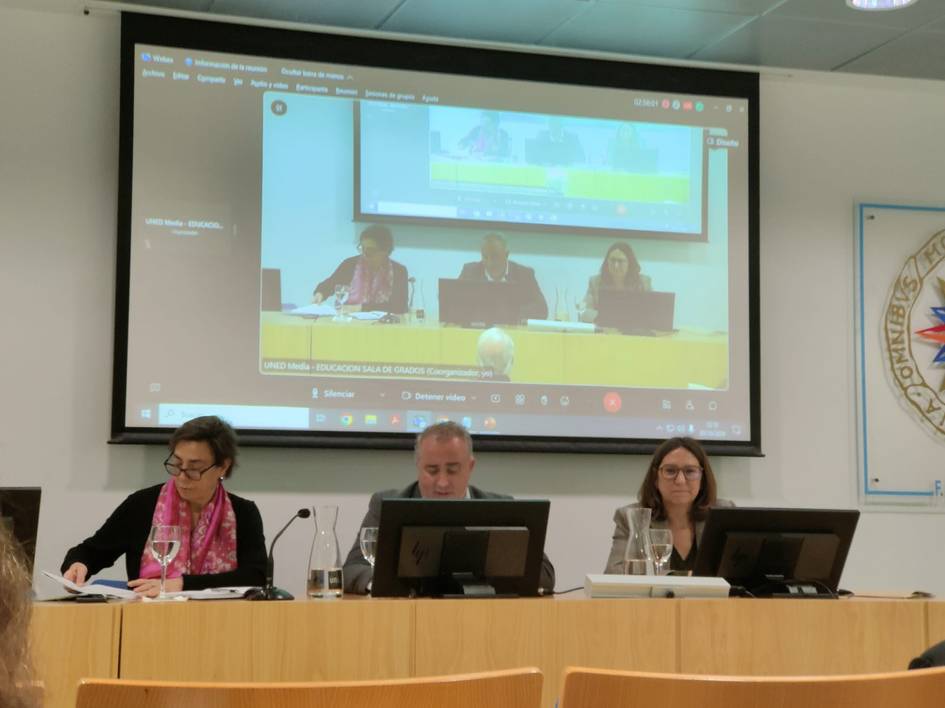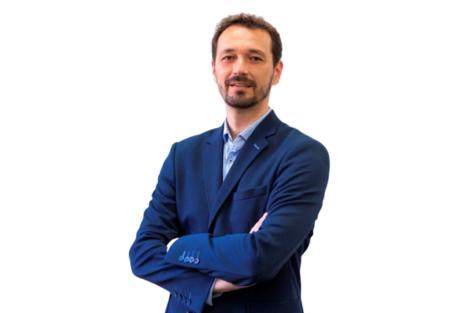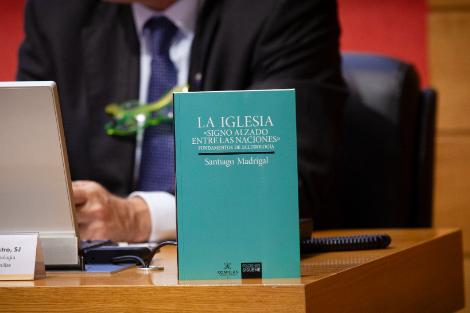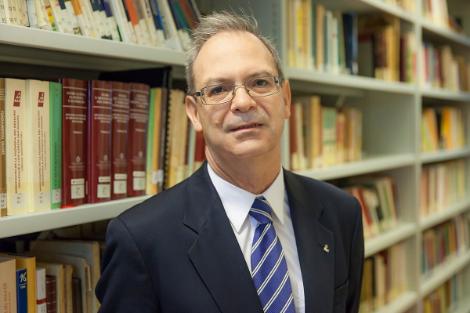Modernity and virtue in Jesuit culture
Professors Carmen Márquez and Jesús R. Folgado from the Faculty of Theology participated as speakers in this Interdisciplinary Seminar organised by the UNED and Comillas

Professor Carmen Márquez during her speech
6 November 2024
On 29 and 30 October, the VIII Interdisciplinary Seminar, organised by the Medieval and Renaissance Studies Group of the UNED and the Comillas Pontifical University, was held in the Salón de Grados of the Faculty of Education of the UNED. It was entitled "Modernity and virtue in Jesuit culture (16th-17th century): change of paradigm".
This Seminar was presented, among others, by the Co-director of the Seminar, Professor Henar Pizarro, from the Faculty of Human and Social Sciences at Comillas, and counted with the intervention of Professors from different universities.
Among the speakers were Carmen Márquez, also Head of Studies of the TUP Programme, and Jesús R. Folgado, from the Faculty of Theology at Comillas.
Jesús R. Folgado 's talk was entitled "The canonisation of Francisco del Castillo, SJ: a paradigm of virtue and Jesuit influence in the Viceroyalty of Peru". In the words of Professor Folgado:
The attempts to beatify the Lima Jesuit Francisco del Castillo (Lima, 1615-1673) testify to the importance given to the recognition of virtue in order to achieve elevation to the altars following the Decrees of Pope Urban VIII (1642). Together with Castillo's Autobiography and the reports that the Jesuit's superiors periodically sent to Rome, the collection of testimonies for the beatification process bear witness not only to Castillo's virtue but also to how the Church of Lima and the Society of Jesus had to adapt to the new Roman directives.
Moreover, the beatification of the Jesuit became an essential issue for both the Society of Jesus and the State, and not only during the time of the Viceroyalty of Peru but also in the later period of the Peruvian Republic. In this way, virtue became an exercise in both politics and soft diplomacy. Francisco del Castillo thus became a bastion of how the Viceroyalty, and especially its capital, Lima (the City of Kings), was to be not only a territory that generated wealth for the whole world, but also a place from which the whole of Christendom was to be nourished by virtue and sanctity.
For her part, Professor Carmen Márquez spoke on"'Totus mundus nostra fit habitatio': qualities and virtues of the Jesuit missionary in the Far East". Professor Márquez stated:
In the course of a century since their foundation, the Jesuits had sailed all the seas, but it was the missions of Asia that provided the Society with its most illustrious mission lands, its most outstanding missionaries, and where it most successfully forged the so-called "method of accommodation". The Society of Jesus was born as an apostolic community, marked by a missionary ecclesiology articulated around the missionary sending that crystallised in the vow circa missiones.
Itsfounder, Ignatius of Loyola, had indicated the guidelines that were to guide the Society's missions: accommodation to the circumstances of people, times and places, learning the language and knowledge of history, and the criteria for discernment in the choice of missions. This was to be matched by the profile of a missionary capable of facing the task of evangelisation in the distant lands of the East. The letters of Francis Xavier and the Instructions of Father Valignano, Apostolic Visitor for the East, set out the profile of the qualities and virtues required of those Jesuits called to evangelise the Far East.
All the latest news from the Faculty of Theology can be found on the website, in the monthly newsletter and on the social network X (formerly Twitter).
Image gallery
You may also be interested in

Professor Santiago G. Mourelo publishes this article on the itineraries of education in faith in the magazine Misión Joven, of Salesians

The posthumous work of the Professor, published by Publishing House Sígueme , was presented with a heartfelt tribute by professors and friends

Professor Gabino Uríbarri, SJ participated in the presentation of this book by Carlos María Galli
